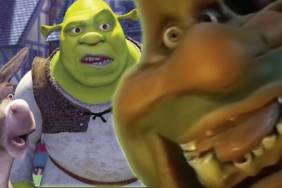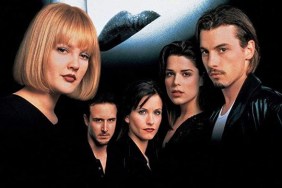
According to a recent report from The Hollywood Reporter, Disney is having some troubles when it comes to new live=action properties as the studio stands to lose between $120-140 million on Brad Bird‘s blockbuster fantasy adventure Tomorrowland.
The studio previously lost $200 million on John Carter and $190 million on The Lone Ranger, and while the end result for Tomorrowland may not be as harmful to the studio’s bottom line — especially with Avengers: Age of Ultron taking the box office by storm, two different Pixar movies hitting theaters this year, and the Star Wars franchise returning to the big screen at Christmas time — it is perhaps just as telling about the current state of big-budget filmmaking. The Tomorrowland news marks yet another blow to studios looking to produce films with nine-digit budgets that aren’t sequels or spin-offs, aren’t part of a larger cinematic universe, or don’t already have a built-in fan base.
Disney isn’t the only studio struggling to launch original tentpoles however — and yes, I’m using the word “original” rather loosely, I know — as both Jupiter Ascending and Seventh Son crashed and burned at the box office on the same weekend earlier this year, leaving their respective financiers scrambling to figure out how to mitigate their losses even before the films played in front of audiences. Jupiter Ascending lost a projected $120 million according to The Hollywood Reporter, and Legendary Entertainment took an $85 million writedown for Seventh Son in February just one month after taking a $90 million writedown for Blackhat.
While Disney is able to soften its financial blows with its various other tentpoles — the studio owns Pixar, Marvel and Lucasfilm — other studios aren’t quite as lucky, and with original big-budget filmmaking becoming an ever-riskier game, one has to wonder if studios will simply continue to go the route of sequels, prequels, cinematic universes and known properties instead of trying something different like Disney’s John Carter or even Warner Bros.‘ Edge of Tomorrow, which turned only a meager profit despite being hailed one of 2014’s best films. If unknown properties continue to perform poorly, it wouldn’t be surprising to see them more or less disappear from the marketplace.
“There’s a reason you’re seeing more sequels, prequels and known properties,” MKM Partners analyst Eric Handler told The Hollywood Reporter, “because you never know how films like Tomorrowland or Jupiter Ascending are going to turn out.” Brad noted exactly this last summer after Edge of Tomorrow bombed during its opening weekend at the box office, earning just $28.8 million despite costing Warners $178 million upfront before any marketing or advertising costs.
In that article, Brad wrote, “You’re spending a lot of money to go to a movie and when you see something familiar you’re more likely to go that way than something you’re unfamiliar with,” and while I consider myself a bit of an outlier in that regard, the majority of the moviegoing public is much more risk-averse. In other words, when choosing between an assortment of movies to go see audiences are likely to opt for the sure thing instead of the unknown quantity toss-up.
Big-budget filmmaking has become high risk, low reward for those properties, like Tomorrowland, that don’t already have a following. For example, The Hunger Games did well right out of the gate, but that’s because the book upon which it was based was a global phenomenon, as were the rest of the books in the series. Add in the fact the film was geared toward the teen and young-adult crowd and you’ve got a recipe for surefire success much like the Twilight and Harry Potter films.
Of course, there are outliers. Mad Max: Fury Road has taken in $315.8 million at the worldwide box office against its $150 million budget, not bad at all for an R-rated action film and the first film in the Mad Max franchise in 30 years. Despite being unfamiliar to most of today’s audiences Fury Road has done well, far better than I think anyone, even its home studio, expected.
Still, it seems we are more and more likely to see fewer and fewer unfamiliar big-budget tentpoles like Tomorrowland as studios either spend the bulk of their money on already-successful brands — whether through building cinematic universes, continuing franchises or rebooting older properties — or throw a smaller amount of money at comedies like Spy or Pitch Perfect, where failure matters little and success brings the possibility for cheap sequels that outgross their predecessors during their opening weekend. What that means for the cinematic landscape in the coming years I’m not sure, but it will be interesting to see how things play out from here.









